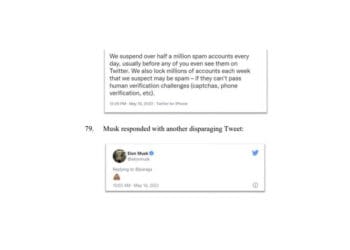The modern compliance officer must be constantly evolving to be successful in an ever-changing landscape. Some key attributes he or she might consider adopting are that of a psychologist. ICA’s Jon Prentice explains.
Ask any compliance officer the most common question put to them, and most will likely reply: “Can I do this?” or “Am I allowed to do this?”
In years gone by, the response would be probably have been a straightforward “yes” or “no.” However, the compliance officer’s role has evolved over time, and today the answer may well have developed into something along the lines of “should you do it?” – an encouragement to other people to think about their own actions and behaviors.
That is because the role of the compliance officer has changed. Typical compliance responsibilities – interpreting regulations and legislation, creating policies that ensure compliance with those regulations and legislations and advising various business areas of their compliance requirements – remain fundamental, but as compliance develops, so do the requirements for a compliance officer. Today, compliance officers must be able to draw not only on a variety of skills, but also on aspects of other professions. One of these, according to ICA’s Head of Regulatory Compliance Jonathan Bowdler, is psychology.
Bowdler recently pointed out that adopting the methods of a psychologist doesn’t mean you turn into a mind reader, and it doesn’t enable you to know what people are thinking. Far from it, in fact. But using psychology does help you understand that age old question, “why?”
Why do people behave the way they do?
And why might a firm continue to breach regulations despite having watertight policies and procedures?
Human beings are very rarely 100 percent rational, and it is usually an absence of reason that causes a failure to follow procedures – the very procedures that were written in conjunction with, signed off by and supported by other business areas.
Why, then, are they sometimes not followed?
This is where the psychological element can be utilized by the compliance officer: to ascertain the cause and triggers of the human reasons behind process and procedural failings.
Communication – But Not as You Know It
We know compliance officers have a number of key roles to play: adviser, educator, assurance provider, manager of stakeholder expectations, etc., all of which requiring their own specific skills and attributes, such as regulatory knowledge, pragmatism and business knowledge and acumen. However, it is important that all of these are built on an important psychological attribute: communication.
Communication is a very powerful tool for the compliance professional. When we say communication, we tend to immediately think about how we communicate with others – in other words, what we say and how we say it.
We rarely stop to think about how we actually respond to how people communicate with us – that is, our listening skills. Listening is such an integral and undervalued tool with applications wider than in our professional lives.
As the Dalai Lama has said, “When you talk, you are only repeating what you already know. But if you listen, you may learn something new.” It’s a statement that can definitely be applied to compliance.
It’s this give-and-take nature of communication that brings compliance benefits. One of the easiest ways to identify as many potential risks within an organization as possible is for colleagues to come and tell you about them (as opposed to you going out to search for them by yourself). But without being a good listener and making yourself approachable, the chances of that happening are slim.
It is important to understand that being a good listener is much more than just listening during an important meeting or to somebody when they have a potential problem; it means listening at the water cooler or as you walk to your desks in the morning. Listening in those situations can enable you to really start to understand an individual, and when you understand an individual, you start to understand their behavior and why they make certain decisions.
Listening also means more than just waiting for the other person to stop speaking so that you can make your point; it’s absorbing what the other person has said and actively listening. The traditional approach to improving levels of compliance has tended to combine the use of detection and punishment. However, psychology suggests that these strategies can be complemented by an approach that aims to understand the behaviors behind decisions – something that can be achieved through good communication.
From Communication to Compliance
How does good communication become effective compliance?
As we’ve seen, understanding people’s behavior is one of the key steps in determining why a certain action (or lack of action) is or is not undertaken. The Financial Conduct Authority’s (FCA’s) Occasional Paper, “Behaviour and Compliance in Organisations,” published in 2016, focuses on exactly this topic and explicitly highlights the importance of communication. The authors state that morality of behavior and the social context of decisions can materially influence compliance behavior; “wrongdoing can therefore be reduced by promoting a positive culture of compliance. Firms can do this through their tone of communication.”[1]
Through positive communication, the compliance officer can effectively promote compliance and the benefit compliance brings to the business. If you want someone to approach you in relation to a compliance concern or query, you have to promote approachability, give colleagues a reason to approach you, listen and subsequently show them the benefits of their behavior.
Good communication also enables the compliance officer to embed the positive culture of compliance needed to get people thinking about their own decisions and behaviors. Without directly telling people what to do, compliance officers can provide guidance and look to influence the behavior of others through not only their words, but also their actions and approachability (these being aspects of body language, another form of communication). An emphasis on these strands of communication helps compliance officers implement a compliance culture indirectly.
The importance of a compliance culture cannot be overemphasized. It reduces the risk of breaches and any resultant enforcement action, helps to reduce costs, enhances a firm’s reputation and attracts a better customer base.
Adding psychology into your repertoire of compliance tools is a smart and effective way of achieving good compliance.
[1] FCA, Behaviour and Compliance in Organisations, December 2016 – https://www.fca.org.uk/publication/occasional-papers/op16-24.pdf – accessed January 2020



 Jonathan Prentice is Research and Development Manager at
Jonathan Prentice is Research and Development Manager at 






